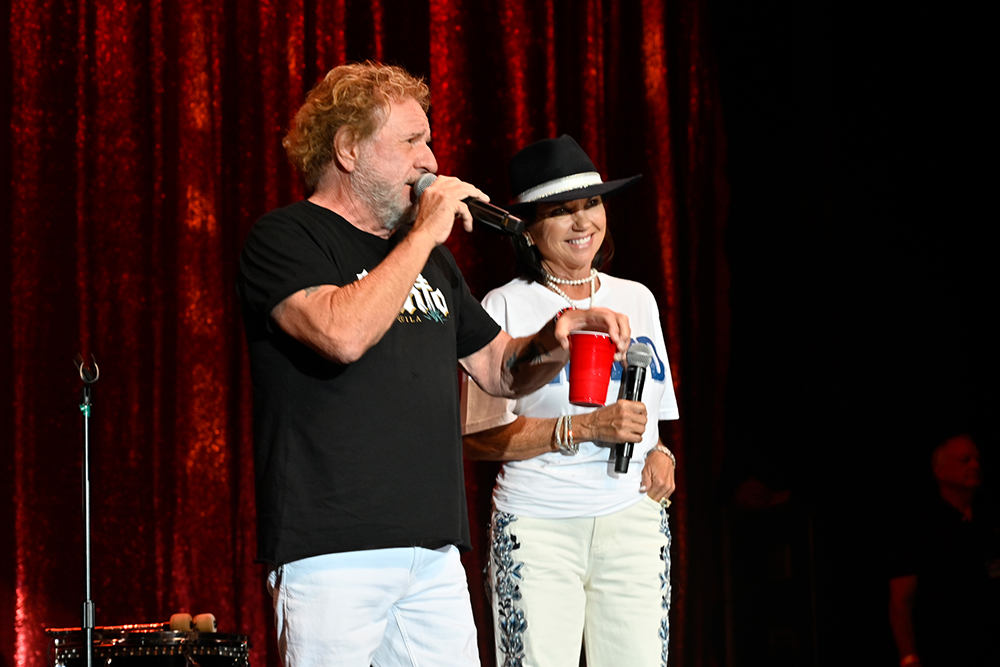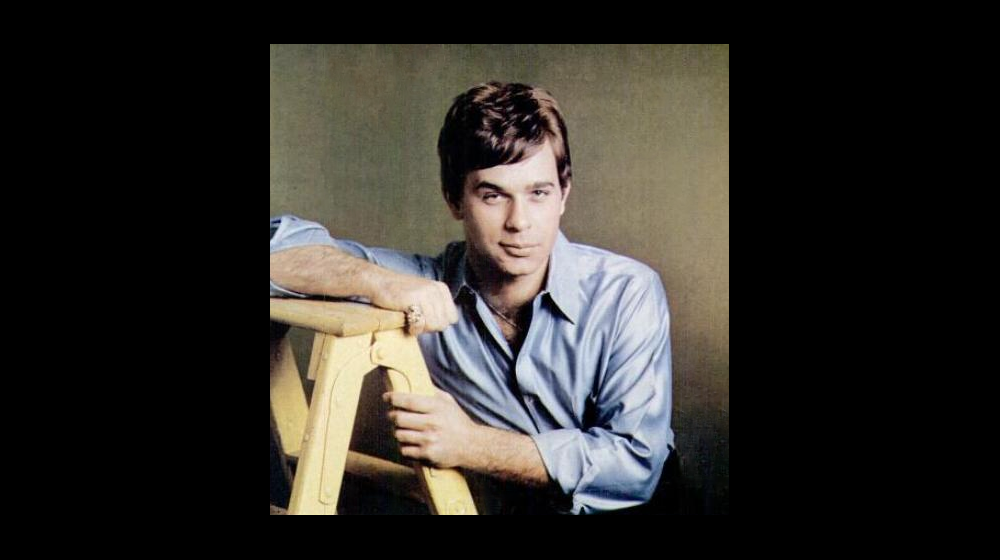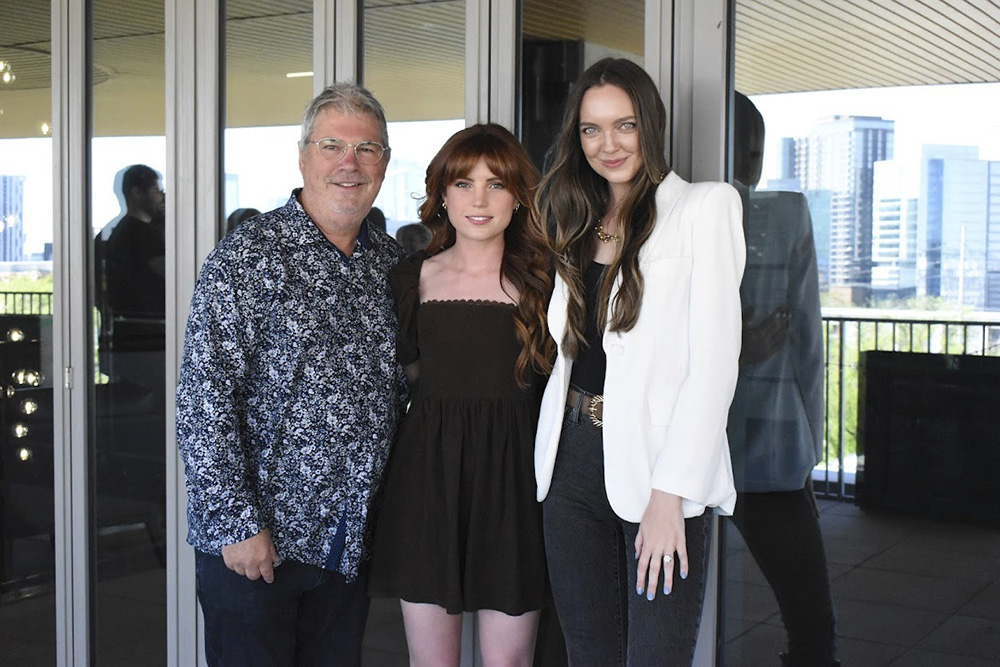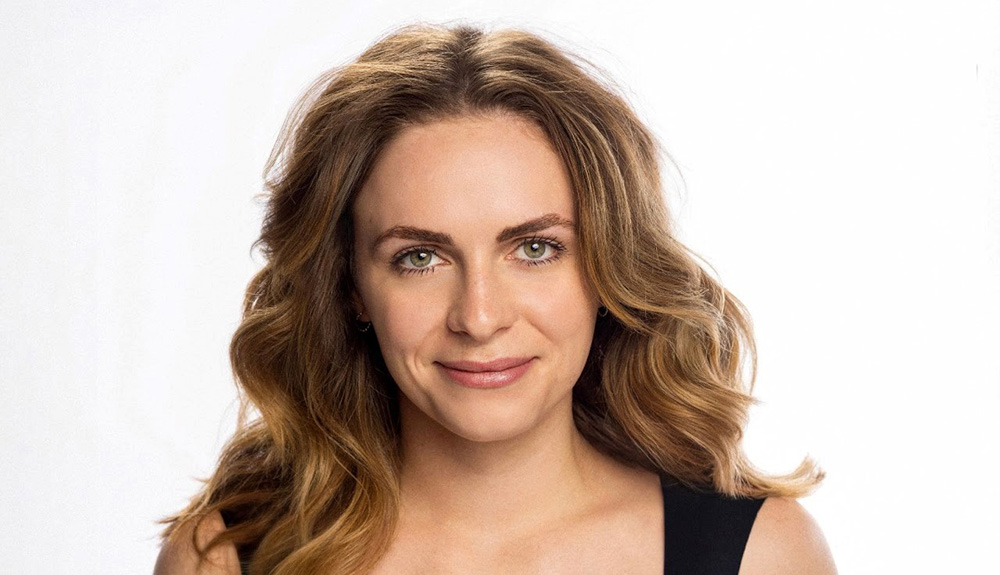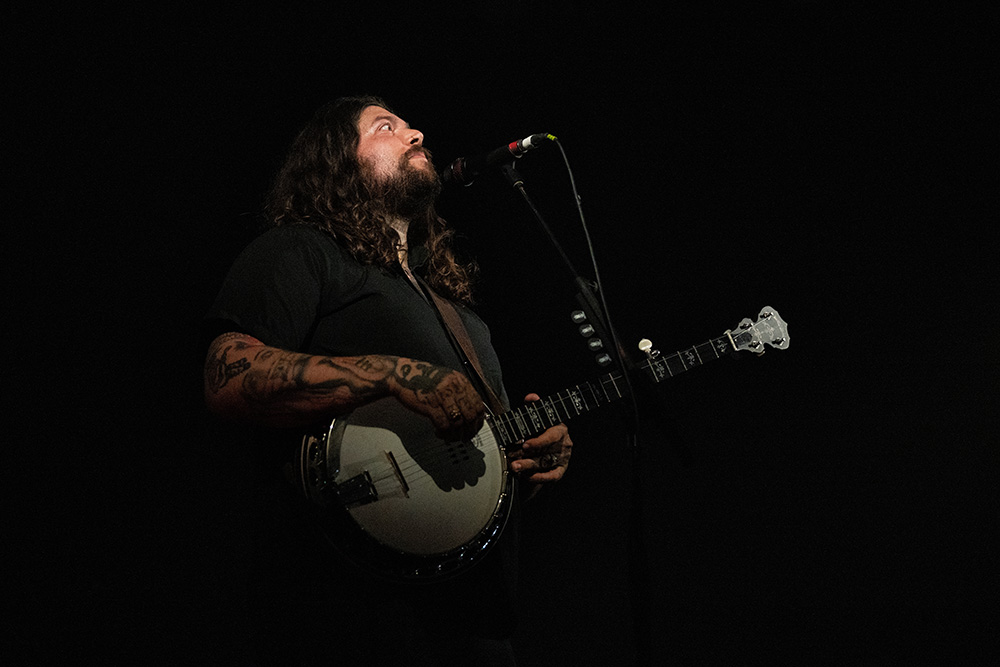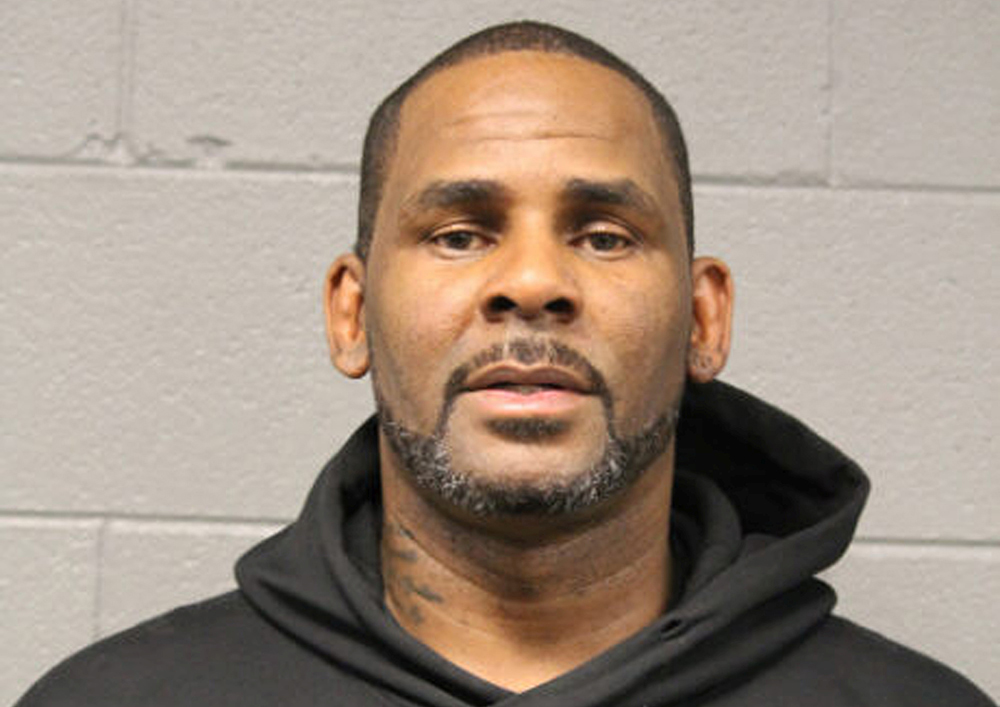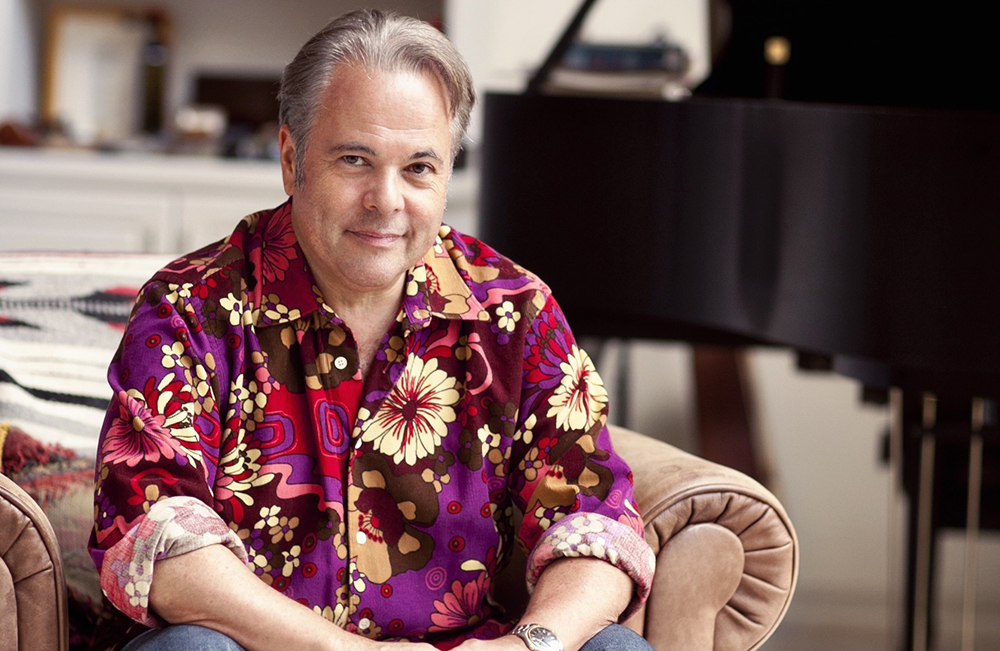
(CelebrityAccess MediaWire) — Donald Pearson, a sound engineer who worked with everyone from the Grateful Dead to the pope, died during heart surgery last week at the age of 63.
Nicknamed Dr. Don for his perfectionism in audio engineering, was lead by his love of the science of sound to a career in music. He worked with rock bands including Jefferson Airplane and Hot Tuna, before moving to a national career and working for everything from political conventions to the Olympics, according to the San Francisco Chronicle.
In 1978, Pearson founded Ultra Sound with partner Howard Danchik, which became the touring company with the Dead in 1980. The company also supported the Dave Matthews Band, Tracy Chapman and Primus.
In 1996, after being perilously close to the bombing at the Olympics in Atlanta, Pearson decided to stick closer to home and focused on large acoustical installations, including a system at Davies Symphony Hall. In 2000, Ultra Sound was sold, but he continued to install custom audio systems.
Friends commented on his perfectionist attitude, and how it extended far beyond his work.
According to longtime friend David Jacobs, Pearson would take 20 minutes to brew a cup of coffee. He had a ritual of freezing the stainless steel steamer on only the perfect espresso machine, before heating the milk to precisely the right temperature. Even the water in the coffee had to be a particular temperature.
“You’ll never have a cup of coffee like this guy made,” Jacobs told the paper. “He was a perfectionist about so many things.”
Pearson is survived by his wife of 39 years, Francis, two children, a sister and two grandchildren.
A public memorial will be announced at a later date.
The family has asked that contributions be made to the National Hemophilia Foundation at www.hemophilia.org. –by CelebrityAccess Staff Writers
 Oscar Winner Shelley Winters Dies At 85
Oscar Winner Shelley Winters Dies At 85
 BEVERLY HILLS, CA (AP) — Shelley Winters, the forceful, outspoken star who graduated from blond bombshell parts to dramas, winning Academy Awards as supporting actress in "The Diary of Anne Frank" and "A Patch of Blue," has died. She was 85.
BEVERLY HILLS, CA (AP) — Shelley Winters, the forceful, outspoken star who graduated from blond bombshell parts to dramas, winning Academy Awards as supporting actress in "The Diary of Anne Frank" and "A Patch of Blue," has died. She was 85.
Winters died of heart failure early Saturday at The Rehabilitation Centre of Beverly Hills, her publicist Dale Olson said. She had been hospitalized in October after suffering a heart attack.
The actress sustained her long career by repeatedly reinventing herself. Starting as a nightclub chorus girl, advanced to supporting roles in New York plays, then became famous as a Hollywood sexpot.
A devotee of the Actors Studio, she switched to serious roles as she matured. Her Oscars were for her portrayal of mothers. Still working well into her 70s, she had a recurring role as Roseanne's grandmother on the 1990s TV show "Roseanne."
"I am so sad. She was a great person and a genius to work with," Roseanne Barr said in a statement. "We will all miss her."
"Shelley was an idol of mine — and many — an extraordinary woman with powerful charisma, enormous talent and a keen, perceptive mind," said longtime friend and actress Connie Stevens.
In 1959's "The Diary of Anne Frank," she was Petronella Van Daan, mother of Peter Van Daan and one of eight real-life Jewish refugees in World War II Holland who hid for more than a year in cramped quarters until they were betrayed and sent to Nazi death camps. The socially conscious Winters donated her Oscar statuette to the Anne Frank House in Amsterdam.
In 1965's "Patch of Blue," she portrayed a hateful, foul-mouthed mother who tries to keep her blind daughter, who is white, apart from the kind black man who has befriended her.
Ever vocal on social and political matters, Winters was a favored guest on television talk shows, and she demonstrated her frankness in two autobiographies: "Shelley, Also Known as Shirley" (1980) and "Shelley II: The Middle of My Century" (1989).
Winters wrote openly in them of her romances with Burt Lancaster, William Holden, Marlon Brando, Errol Flynn, Clark Gable and other leading men. She also said after she came to Hollywood in the mid-1940s she was roommates with another rising starlet — Marilyn Monroe.
"I've had it all," she exulted after her first book became a best seller. "I'm excited about the literary aspects of my career. My concentration is there now."
Typically Winters, she also had a complaint about her literary fame: While reviewers treated her book as a serious human document, she said, talk show hosts Phil Donohue and Johnny Carson "only want to know about my love affairs."
Winters, whose given name was Shirley Schrift, was appearing in the Broadway hit "Rosalinda" when Columbia Pictures boss Harry Cohn offered her a screen test. A Columbia contact and a new name — Shelley Winters — followed, but all the good roles at the studio were going to Jean Arthur in those days.
Winters' early films included such light fare as "Knickerbocker Holiday," "Sailor's Holiday," "Cover Girl," "Tonight and Every Night" and "Red River."
When her contract ended, Winters returned to New York as Ado Annie in "Oklahoma!"
She would soon be called back and signed to a seven-year contract at Universal, where she was transformed into a blonde bombshell. She vamped her way through a number of potboilers for the studio, including "South Sea Sinner," with Liberace as her dance-hall pianist, and "Frenchie," as wild saloon owner Frenchie Fontaine, out to avenge her father's murder.
The only hint of her future as an actress came in 1948's "A Double Life" as a trashy waitress strangled by a Shakespearian actor, Ronald Colman. The role won Colman an Oscar.
"A Place in the Sun" in 1951 brought her first Oscar nomination and established her as a serious actress. She desperately sought the role of the pregnant factory girl drowned by Montgomery Clift so he could marry Elizabeth Taylor. The director, George Stevens, rejected her at first for being too sexy.
"So I scrubbed off all my makeup, pulled my hair back and sat next to him at the Hollywood Athletic Club without his even recognizing me because I looked so plain. That got me the part," she recalled in a 1962 interview.
Winters received her final Oscar nomination, for 1972's "The Poseidon Adventure," in which she was one of a handful of passengers scrambling desperately to survive aboard an ocean liner turned upside down by a tidal wave. By then she had put on a good deal of weight, and following a scene in which her character must swim frantically she charmed audiences with the line: "In the water I'm a very skinny lady."
Although she was in demand as a character actress, Winters continued to study her craft. She attended Charles Laughton's Shakespeare classes and worked at the Actors Studio, both as student and teacher. She appeared on Broadway as the distraught wife of a drug addict in "A Hatful of Rain" and as the Marx Brothers' mother in "Minnie's Boys."
Among her other notable films: "Night of the Hunter," "Executive Suite," "I Am a Camera," "The Big Knife," "Odds Against Tomorrow," "The Young Savages," "Lolita," "The Chapman Report," "The Greatest Story Ever Told," "A House Is Not a Home," "Alfie," "Harper," "Pete's Dragon," "Stepping Out" and "Over the Brooklyn Bridge."
During her 50 years as a widely known personality, Winters was rarely out of the news. Her stormy marriages, her romances with famous stars, her forays into politics and feminist causes kept her name before the public. She delighted in giving provocative interviews and seemed to have an opinion on everything.
Robert Mitchum once told her: "Shelley, arguing with you is like trying to hold a conversation with a swarm of bumblebees."
The revelations in her autobiographies provided endless material for interviewers and gossip writers. She wrote of an enchanted evening when she and Burt Lancaster attended "South Pacific" in New York, dined elegantly, then retired to his hotel room.
"This chance meeting proved to be the beginning of a long but painful romance," she wrote. "Despite the immediate and powerful chemistry between us, the love and the friendship, some wise part of me knew that he would never abandon his children while they were young and needed him."
She also told of a dalliance with William Holden after a studio Christmas party. In a glamorous, real-life version of the play "Same Time, Next Year," they continued their annual Yuletide rendezvous for seven years.
She wrote that despite their intimacy, they continued to refer to each other as "Mr. Holden" and "Miss Winters," and when they met on the set of the 1981 film "S.O.B." she said, "Hello, Mr. Holden." He smiled and replied, "Shelley, after your book, I think you should call me Bill."
Shirley Schrift was born on Aug. 18, 1920, and grew up New York, where she appeared in high school plays.
"My childhood is a blur of memories," she wrote in the first of her autobiographies. "Money was so scarce in my family that at the age of 9 I was selling magazine subscriptions door-to-door.
"It was during this stage of my life that I developed a whole fantasy world; reality was too unbearable. Every chance I got, I was at the movies. I adored them."
Working as a chorus girl and garment district model helped finance her drama studies. She gained practical training by appearing in plays and musicals on the summer Borscht Circuit in the Catskill mountains.
During the Detroit run of a musical revue, she married businessman Paul "Mack" Mayer on Jan. 1, 1942. He entered the Army Air Corps, and after the war, the pair found they had little in common. They divorced in 1948.
Winters' second and third marriages were brief and tempestuous: to Vittorio Gassman (1952-1954) and Anthony Franciosa (1957-1960). The combination of a Jewish Brooklynite and Italian actors seemed destined to produce fireworks, and both unions resulted in headlines.
A daughter, Vittoria, resulted from the marriage to Gassman. She became a successful physician.



















